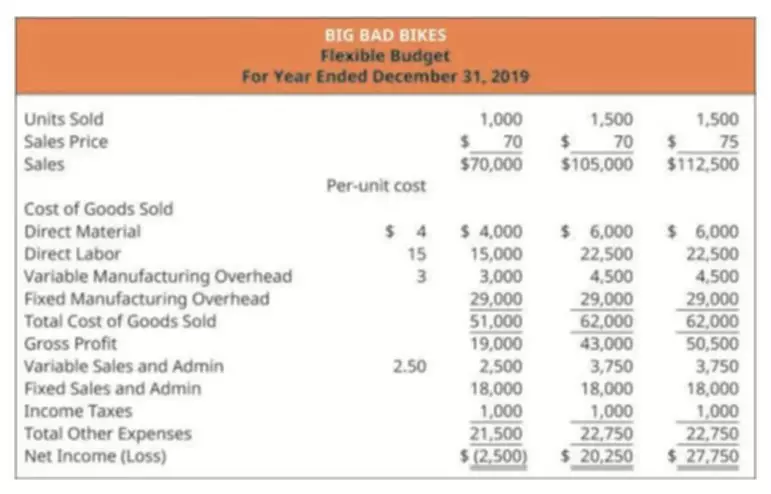Content

By knowing the correct amount of COGS, you can determine the gross profit and evaluate if it’s enough to cover operating expenses. However, bookkeeping and accounting clerk jobs are expected to decline, with the BLS projecting a 3% fall in jobs over the same period. The BLS notes that job growth for accountants should track fairly closely with the broader economy. However, bookkeepers will face pressure from automation and technology that will reduce the demand for such workers. You can become a bookkeeper right out of high school if you prove you are good with numbers and have strong attention to detail. In fact, many aspiring accountants work as bookkeepers to get a foot in the door while still in school.
Many two-year and four-year colleges offer undergraduate certificates in bookkeeping. These programs usually take one year to complete and give students the foundational skills necessary to work as a bookkeeper. Earning an undergraduate accounting certificate also meets the qualifications for many bookkeeping jobs. Part of a bookkeeper’s daily responsibilities include figuring out which payments need to be remitted, if any, then submitting the payments and recording them in the financial ledger.
Questions About How to Become a Bookkeeper
A bookkeeper must be able to shift focus easily and catch tiny, hidden mistakes in a budget or invoice. They often bookkeepers work a few jobs for various clients if they work as a consultant. Accounting often requires more education than becoming a bookkeeper, where most accountants hold undergraduate or graduate degrees or even MBAs in accounting, economics, or finance. Bookkeepers line up all the small pieces of a company’s financial records, and accountants view and arrange those pieces. A bookkeeper provides a critical role in the data collection and data input of a business’ accounting cycle. When there is a proper system in place that avoids problems such as skimming fraud, the recorded financial data can provide valuable, actionable insight.
Most accountants freely admit that bookkeeping is not their strength. They’re more interested in the big picture and don’t have the time or inclination to handle recording daily transactions or organizing financial documents. In this post, we’ll cover the differences and similarities between accountants and bookkeepers and their services so you know which to hire. Double-entry bookkeeping tracks your assets and liabilities and your revenue and expenses whereas a single-entry bookkeeping system tracks only revenue and expenses. A double-entry system works by following the principle that every transaction affects at least two accounts. The NACPB offers credentials to bookkeepers who pass tests for small business accounting, small business financial management, bookkeeping and payroll. It also offers a payroll certification, which requires additional education.
Rules and Expectations for Bookkeepers vs. Accountants Roles
You can find more information on which transactions require supporting documents on the IRS website. As your business grows to include more customers, vendors, and employees, keeping track of your finances on your own becomes more challenging. Bookkeeping is a direct record of all purchases and sales your business conducts, while accounting is a subjective look at what that data means for your business. Here’s what you need to know about these two roles to determine which one your business needs. Bookkeeping may even offer you an opportunity to work from home. This is how your company gets paid so it’s a pretty important task. It’s valued at a whopping $98.7 billion in the United States alone.
- There are many aspects of a business’s finances that a bookkeeper may touch from travel expenses to taxes.
- An enrolled agent is a tax professional authorized by the United States government.
- Bookkeepers have to understand the firm’s chart of accounts and how to use debits and credits to balance the books.
- Producing invoices, chasing payments, getting you ready for tax deadlines and processing payroll.
At a minimum, an accountant must have a bachelor’s degree in accounting. They may also pursue certifications to demonstrate they have the expertise required to serve their clients. The difference between bookkeeping and accounting isn’t always black and white. Business owners who are hands-on in managing the business can handle bookkeeping. In this setup, you see the inflows and outflows of resources as you enter transactions in your accounting system.
Manage Cash
A bookkeeper is often responsible for some or all of an organization’s accounts, known as the general ledger. They also produce financial what is bookkeeping statements and other reports for supervisors and managers. A bookkeeper produces financial records for businesses or organizations.
Accountant vs. Bookkeeper: What’s the Difference? – businessnewsdaily.com – Business News Daily
Accountant vs. Bookkeeper: What’s the Difference? – businessnewsdaily.com.
Posted: Sun, 22 Dec 2019 13:08:03 GMT [source]
